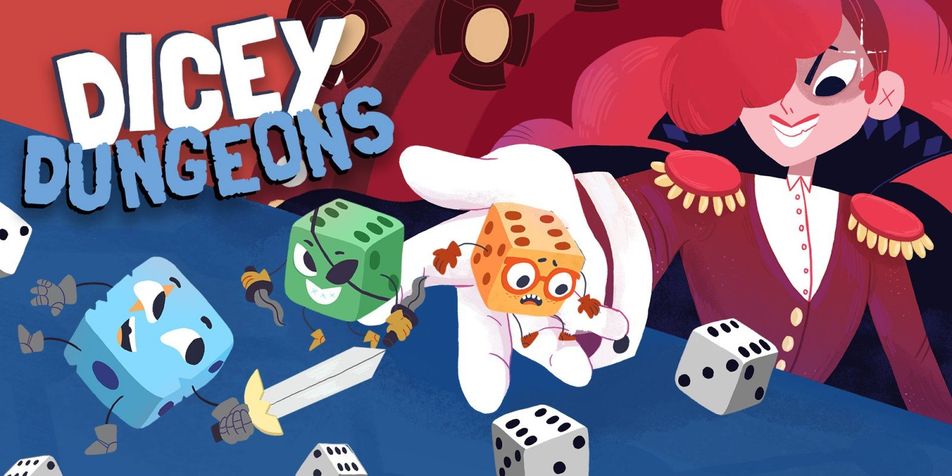Dicey Dungeons
I’ve said it before and I’ll say it again: I am a massive fan of deck - builders . I grew up playing Magic: The Gathering, Pokemon, and Yu-Gi-Oh, and my most-played games other than Rimworld continue to be the deck-builders. They’re fun, cathartic, quick, and everything I, as an adult, am looking for in a play session.
This means, though, that when I come across a deck-builder in my list, I am immediately entering it with a certain set of expectations. Rather than waltzing in to see what I see and how I feel about it afterwards, I instead approach them with an eye towards mechanics, composition possibilities, synchronisation, and all these other fancy words that make me sound like I actually know what I’m talking about it.
I don’t, by the way. I just pretend I do, and everyone seems to go along with it for some reason.
All this to say that I approach deck-builders with a bit more scrutiny, and that that might be a tad unfair. In the case of Dicey Dungeons, I definitely think that experience and scrutiny is working against it, however much I may pretend and try otherwise. I try to give the dice a fair shake, but still, I suspect they were loaded from the start.
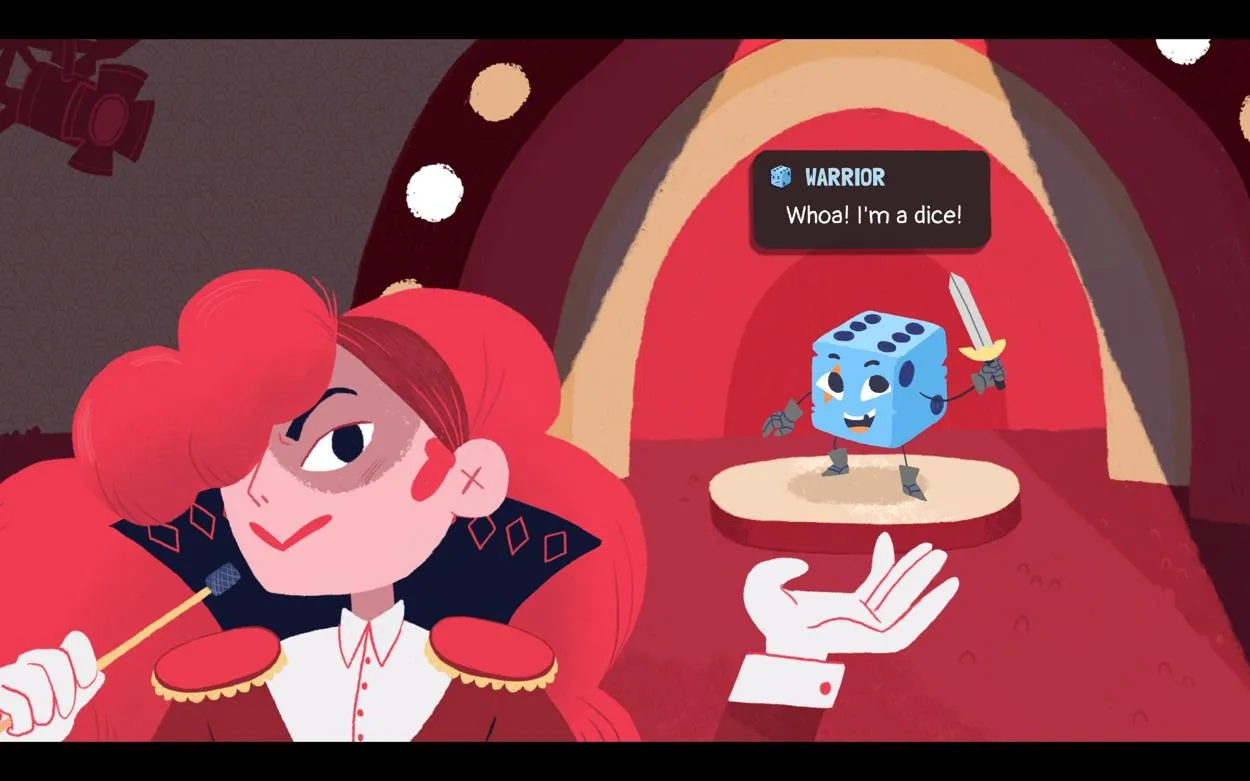 #cantstopwontstop
#cantstopwontstop
Dicey Dungeons is a roguelike deck-builder. You play as a contestant cum die on a hellish game show, trying to win a prize, but ultimately condemned to an endless loop of death for all eternity. Players make their way through five levels and a boss fight, fighting enemies, grabbing upgrades, and going on a grand voyage of self-discovery as they seek to win an elusive prize. It’s a bit like reality TV, only the dice actually seem happy to be there.
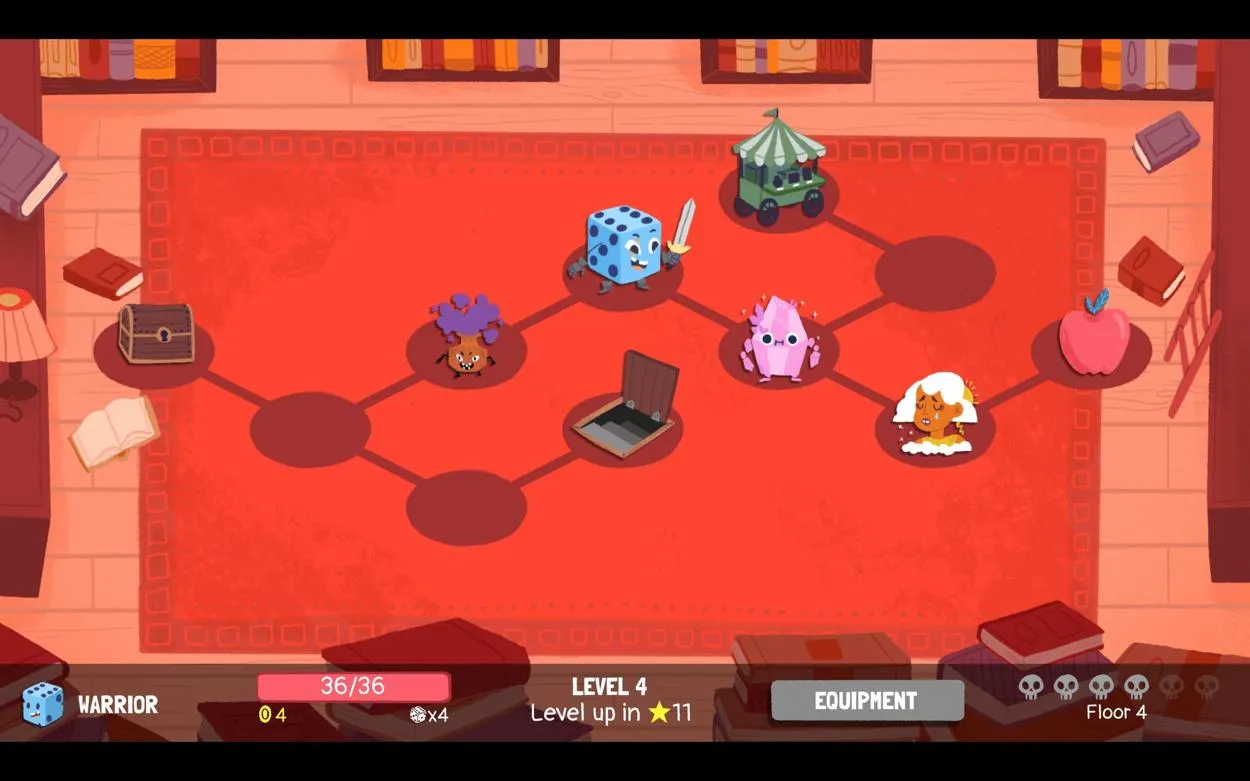 My self-discovery is that I’m stabby!
My self-discovery is that I’m stabby!
Every deck-builder has a unique mechanic, and Dicey Dungeons is no different. Rather than being a deck-builder, per se, Dicey Dungeons instead focuses on providing the player with a range of equipment that they then use to build out their character and their abilities. This equipment is fuelled through dice, meaning players have to build their layouts based not on what’s drawn in any particular hand, but on making the most of the dice they’re given. The equipment is also supplemented with various challenges and abilities provided by the level and character choice, though the mechanics fundamentally remain the same - the player receives dice and must use them to power their abilities and progress through the levels.
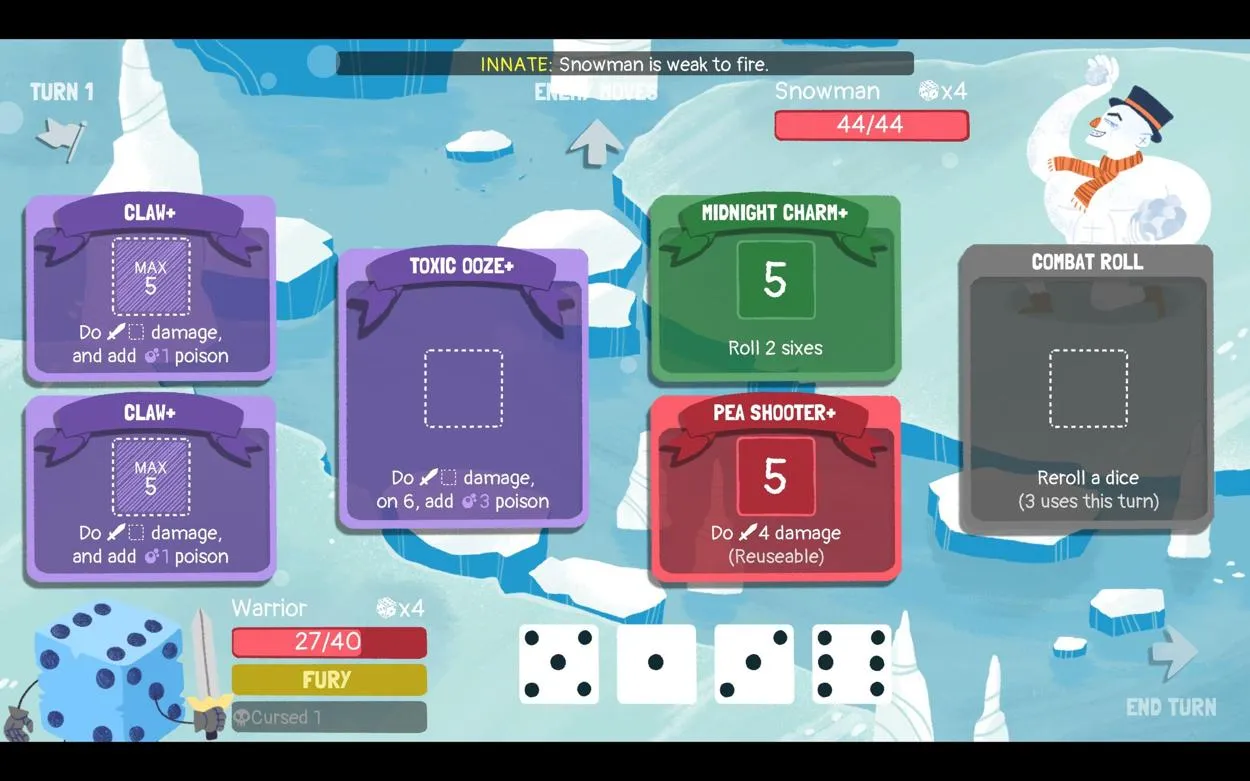 I will use these dice to punch that snowman in his dumb snowman face.
I will use these dice to punch that snowman in his dumb snowman face.
In every deck-builder, one of the biggest enemies the player faces is not a boss or a particular enemy, but rather, the concept of randomness. Every round the player plays needs to be a structured one. The more skilled the player, the more structured every round becomes, and the more randomness ceases to be a factor in the equation. This is a large part of why a goal in most deck-builders is to build as trim a deck as possible. Crafting a slim deck means the chance of not drawing a desired card on any given round is miniscule, giving the player perfect control over what they do with every single turn.
It’s this experience and inclination I have with deck-builders to control the chaos that I think makes me bounce so hard off Dicey Dungeons. While I can build as controlled a build as I like, it is still dependent on dice and their rolls. That chaos is never truly gone, and as such, I can’t entirely predict how my turn or the enemy’s turn will actually go. In multiple playthroughs, I ran into situations where I thought I had a fight well in hand, only to lose because I had an exceedingly unlucky turn, and the enemy an exceedingly lucky one. The dice themselves add a certain unfairness to the game that make it feel less like a game of skill, and more a game of waiting for luck to be a lady.
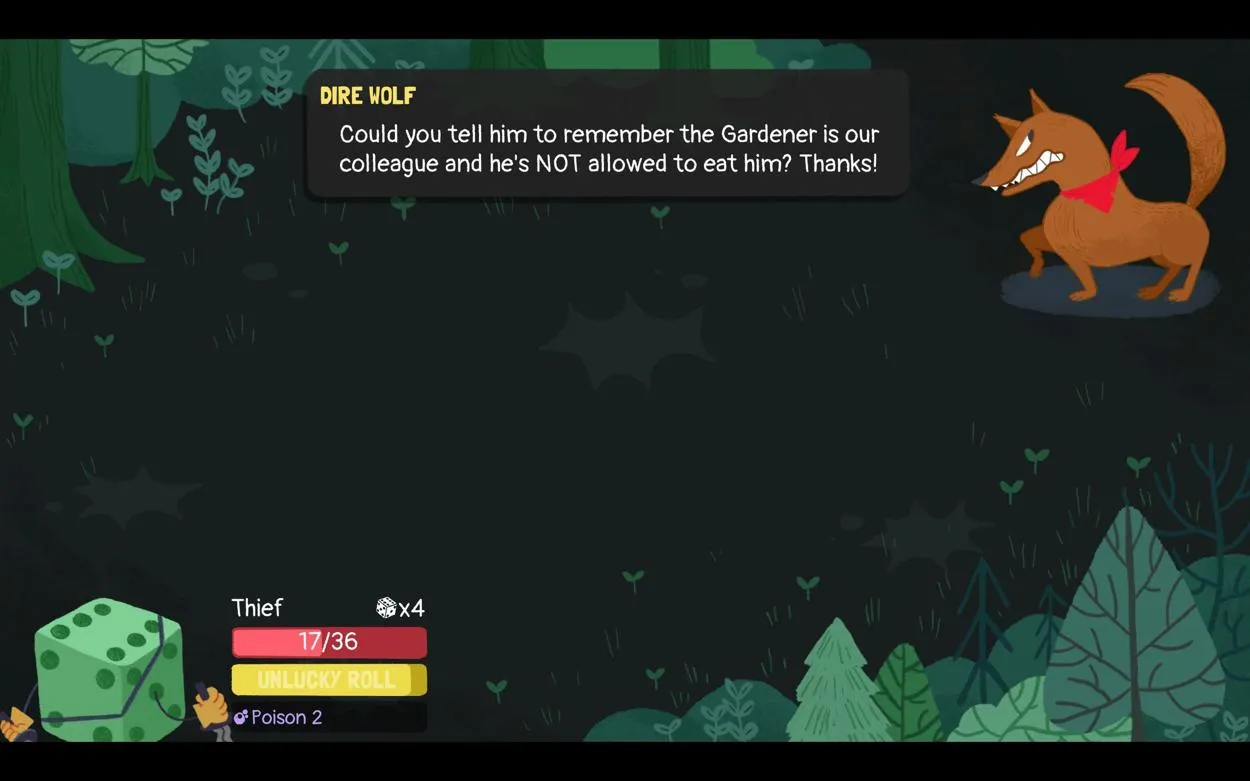 …can i pretend i’m the gardener?
…can i pretend i’m the gardener?
To be clear, I recognise that sense of unfairness is part of the theme the game is building. The game is set in a rigged game show, after all, where contestants are tormented for no other reason than because it’s entertaining. The idea that a run succeeds or fails based on pure chance is a perfect thematic fit for what the game is trying to do.
However, just because it fits thematically doesn’t make it fun to engage with. When I’m left frustrated and disengaged because it doesn’t feel like my build has any more impact on the game than an RNG, that’s a sign that the randomness is a bug, not a feature. Dicey Dungeons doesn’t really provide the player a way to control the randomness, and thus never really provides a player a chance to feel like they’re in charge of their fate.
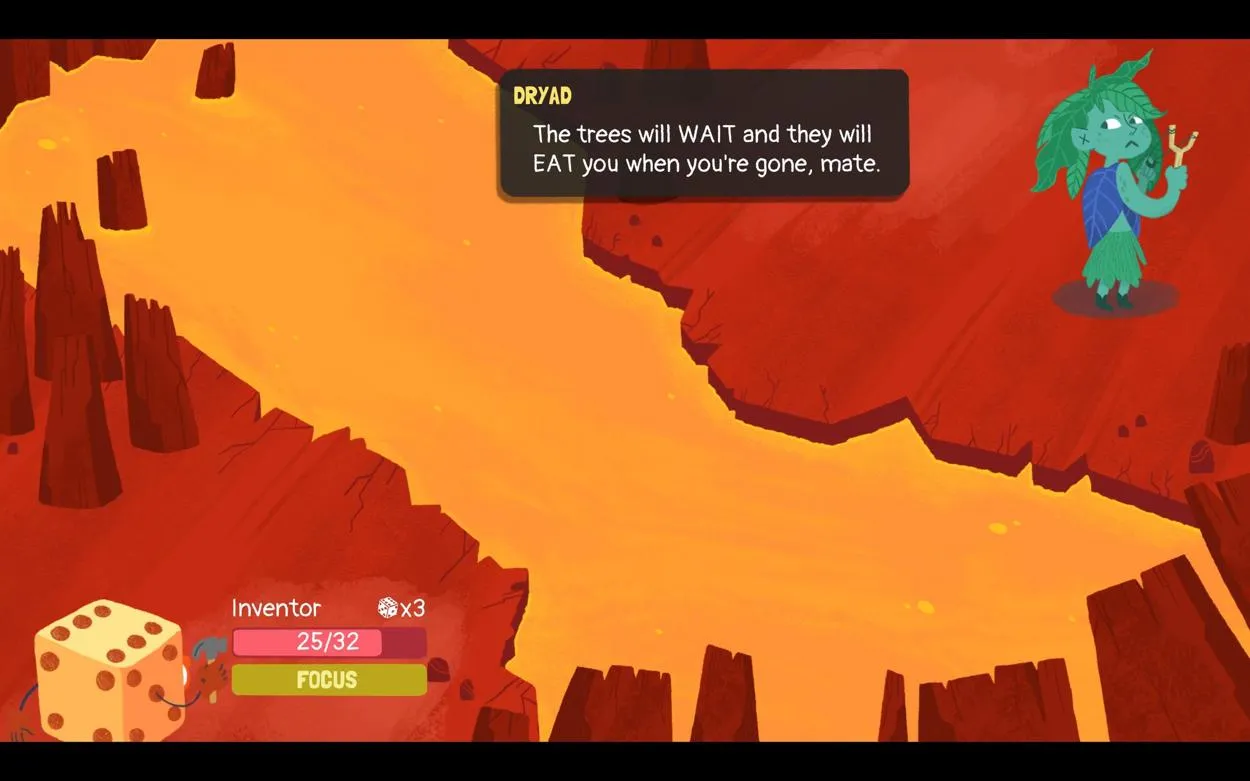 True dat.
True dat.
This is also not helped by the length of the game itself. While half hour rounds are great for playing in short bursts, in practice, I rarely felt like I got to a point where my build felt complete. I stayed on the edge of my seat, unsure how any given combat would go, looking for the next piece of equipment that might actually help me feel complete, while also never being sure it existed. Half an hour is not enough time to feel truly invested in a run and feel anything when it ends, to build that narrative of who the character is and why they’re doing this. Instead, the runs just end, and the player is spat back out to decide for themselves whether to continue down the Sisyphean path of throwing themselves on the mercy of the dice.
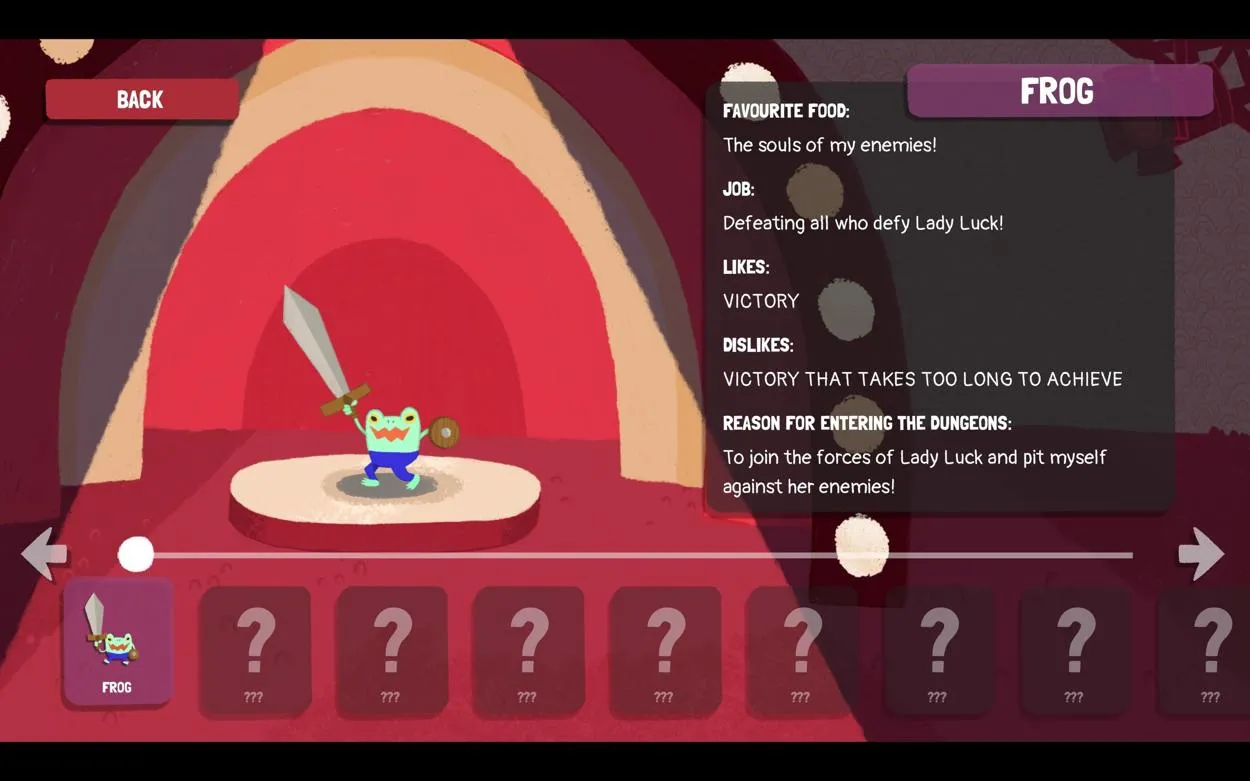 I am Frog.
I am Frog.
I’ve seen Dicey Dungeons described as a good introductory deck-builder, and to a certain extent, that’s true. It provides an introduction to the ideas that are inherent to the rest of the genre in a quick enough way that someone can decide whether or not this genre is actually for them. Playing through this as a veteran of the genre, though, I’m left with a decided sense of lack in the experience. Dicey Dungeons lacks most of what I enjoy in a deck-builder, and replaces it with nothing. It feels hollow and random, with no real sense of control or ability to gain it. It feels like I’ve been placed on a dais and forced to dance for reasons I don’t fully understand and am not prepared to deal with.
I did get something out of the experience after all.
Developer: Terry Cavanagh
Genre: Roguelike, Deck-Builder
Year: 2019
Country: Ireland
Language: English
Play Time: 15-30 Minutes/Run
Youtube:
